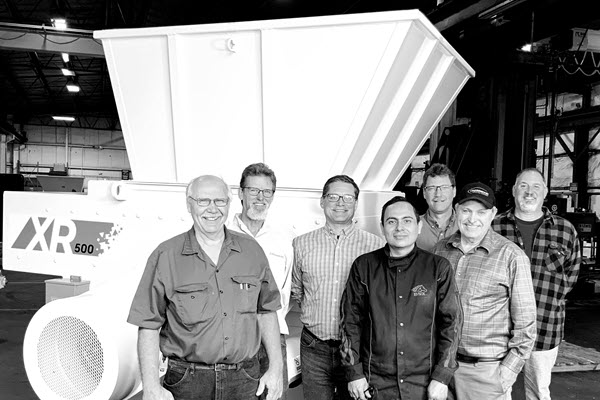
In today’s fast-paced and technology-driven world, the manufacturing industry continues to be a cornerstone of economic growth. Skilled trades professionals play a vital role in keeping this industry running smoothly. From welding and machining to electrical work and equipment maintenance, skilled trades careers in manufacturing offer a wide range of opportunities for individuals looking for stable, well-paying, and rewarding professions. As we look at the various aspects of a skilled trades career path in the manufacturing industry, at Cresswood, we know all too well the value of these professionals in our American made industrial shredder and grinder company.
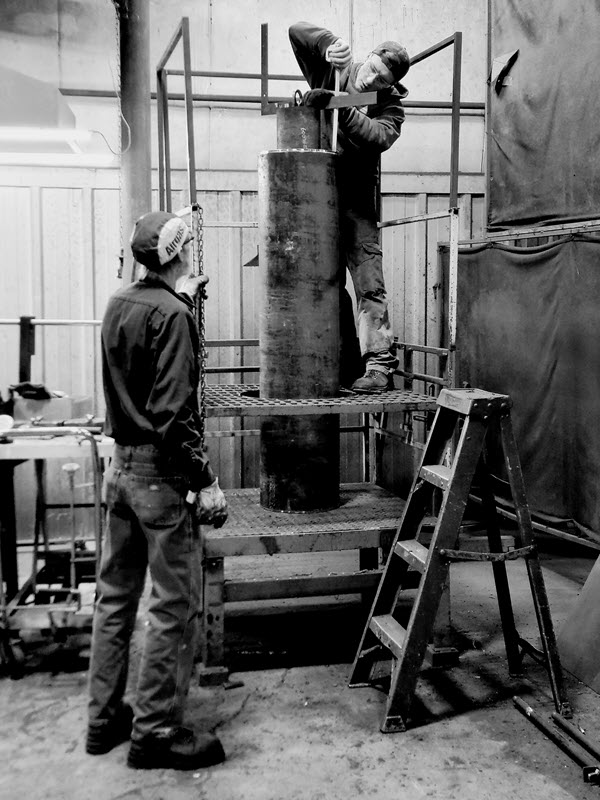
The Importance of Skilled Trades in Manufacturing
Manufacturing is the backbone of many economies, providing essential products and creating job opportunities. The bottom line is a vibrant Manufacturing base leads to more R&D, innovation, productivity, exports, and most importantly solid middle-class jobs. Manufacturing helps raise living standards more than any other sector of our economy. Manufacturing generates more economic activity than other sectors, and for every dollar of domestic manufacturing value-added, another $3.60 is generated elsewhere across the economy. For every manufacturing job created, results in another 3.4 jobs are created in non-manufacturing industries. No other aspect of our economy comes close to these astounding numbers!
Skilled trades professionals are the unsung heroes of this industry, ensuring the machines run efficiently and the products meet the quality standards. Here are some of the primary reasons why skilled trades are crucial in manufacturing:
Precision and Expertise in Manufacturing
Skilled trades workers are experts in their respective fields, ensuring that every piece of machinery, product, or component is crafted with precision and accuracy. At Cresswood, we have a fabrication team that puts together all of the grinder frames, cutterheads, hoppers, and conveyors. Their welding skills are at the core of their success as a fabricator which is essential to creating our world class industrial grinders.
Manufacturing Problem Solvers
Manufacturing processes often come with unforeseen challenges. Skilled trades workers are adept at troubleshooting and finding innovative solutions to maintain production flow.
Safety and Quality Control is Essential
Skilled trade professionals are responsible for maintaining safety standards and product quality, which is critical in manufacturing to avoid accidents and produce reliable products. Our Cresswood team practices health and safety compliance in the manufacturing of our world class industrial grinders and shredders.
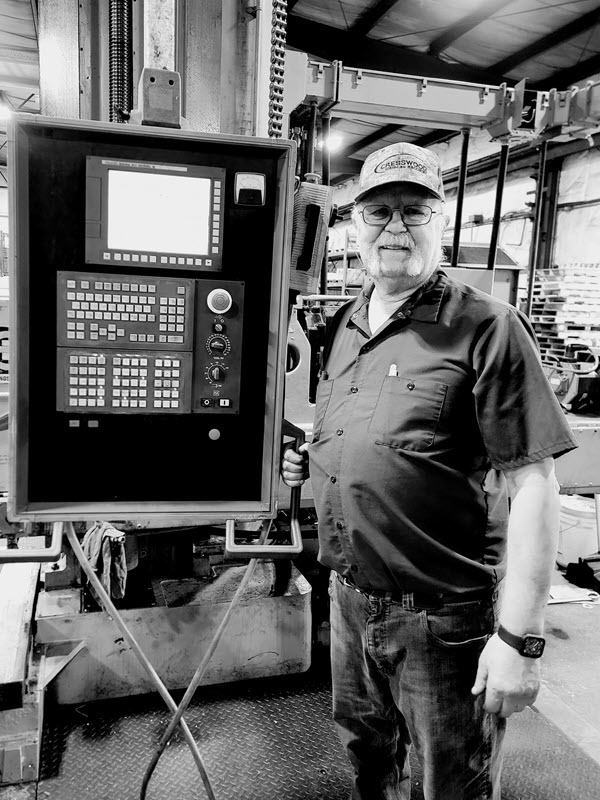 Career Stability in the Manufacturing Industry
Career Stability in the Manufacturing Industry
The manufacturing industry consistently demands skilled trades workers, which provides a high level of career stability. Today’s manufacturing jobs combine advanced technologies and materials, and clean and safe environments. There has been a false stigma attached to manufacturing work, that it is dangerous and you’ll be working in these awful environments with greasy old equipment. This can’t be further from the truth. Modern equipment is operated by advanced CNC controls and the latest 3D modeling software. Even in the pallet recycling shredders industry, highly sophisticated software is used to do load analysis, allowing engineers to create customized solutions that balance strength, efficient design, and optimized material usage.
Many of these engineers started on the shop floor running the equipment that produces the pallets and materials. In the majority of businesses I’ve been in, their management teams are largely comprised of men and women who have worked their way up within the organization. I don’t think we talk about this enough when it comes to manufacturing, because no other industry gives you these types of opportunities to grow a career, be it as an office administrator, a shop floor supervisor, an engineer, or a key player on a management team. My [Ryan Butzman, President of Cresswood Shredding Machinery] career is a testimony to this truth. I started in manufacturing as a second-shift press brake operator, and today I am the President of a world-class industrial grinder OEM. It takes hard work, constant learning, and a willingness to join organizations that support your growth, but the possibilities are so wide and open and it is such an incredible industry to start a career in.
Career Options in Manufacturing
Manufacturing offers a plethora of career options for skilled trades workers, each with its unique requirements and rewards. Some of the most common skilled trades careers in manufacturing include:
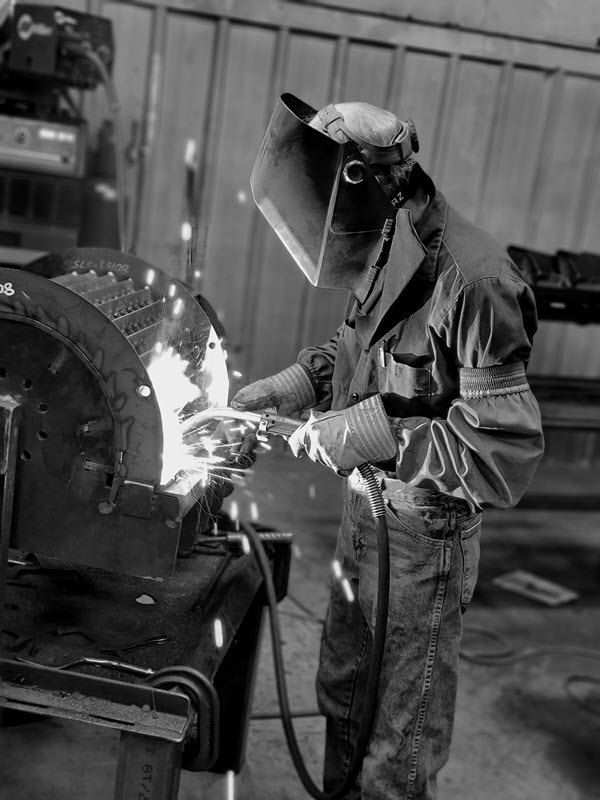 Welders
Welders
Welders are responsible for joining metal parts together through various welding processes. Their skills are crucial in constructing and repairing machinery, pipelines, and infrastructure. Welders and fabricators play a pivotal role in the wood, pallet, plastic, and paper recycling shredders and grinders manufacturing industry and are an integral part of Cresswood’s operations as a world class industrial grinder and shredder company. Their work involves a wide range of tasks that are vital for the construction, maintenance, and repair of machinery used in the recycling sector.
Machinists
Machinists operate machine tools to create precise parts and components for various products. They are skilled in working with metal, plastic, and other materials. Machinists play a critical role in the recycling grinders and shredders manufacturing industry by operating machine tools to create the precise parts and components necessary for the construction and maintenance of these specialized recycling machines. Their expertise in working with various materials is integral to the success of the industry.
Electricians
Electricians install, maintain, and repair electrical systems in manufacturing facilities. They ensure the uninterrupted flow of power to run machines and equipment. Electricians in the recycling grinders and shredders manufacturing industry play a crucial role in ensuring the safe and efficient operation of the machinery and manufacturing processes.
Mechanics and Technicians
These professionals perform maintenance and repair work on manufacturing equipment, ensuring that production remains efficient and downtime is minimized. Mechanics and technicians in the recycling grinders and shredders manufacturing industry are integral to the upkeep and reliability of machinery and equipment.
CNC Operators
Computer Numerical Control (CNC) operators play a pivotal role in the recycling grinders and shredders manufacturing industry, where precision and efficiency are paramount. These professionals use computer-controlled machinery to create intricate and highly precise components for recycling equipment.
Industrial Maintenance Technicians
Industrial Maintenance Technicians play a critical role in the recycling grinder and shredder machinery manufacturing industry by ensuring that production facilities and equipment operate smoothly and efficiently. Their responsibilities encompass a wide range of tasks that contribute to the reliability and performance of recycling machinery.
Education and Training
The path to a skilled trades career in manufacturing typically involves a combination of education and hands-on training. Here’s a general overview of the steps involved:
High School Education
Start with a high school diploma or equivalent. Focus on math, science, and technical courses to build a solid foundation.
Vocational or Technical Training
Enroll in vocational schools or technical training programs that offer specialized courses in your chosen field. These programs provide hands-on experience and theoretical knowledge.
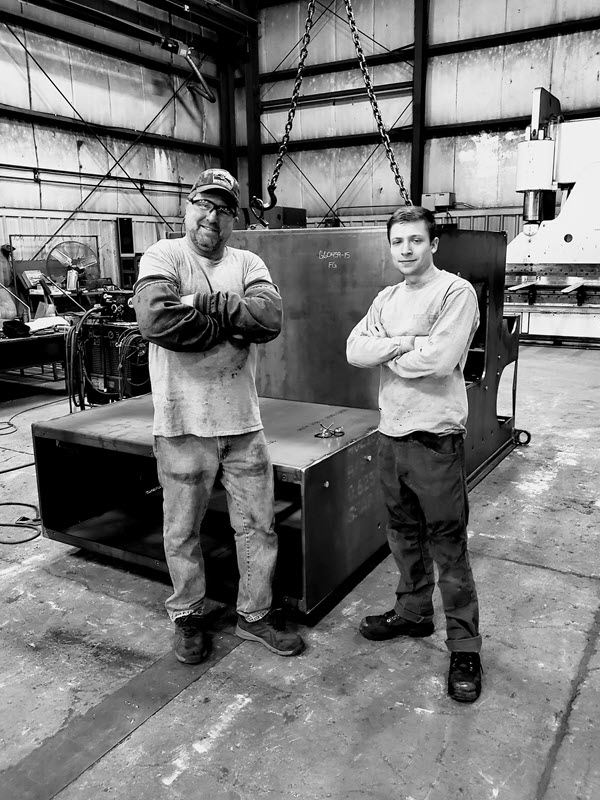 Apprenticeship
Apprenticeship
Many skilled trades careers in manufacturing offer apprenticeship programs. During an apprenticeship, you’ll work alongside experienced professionals, gaining practical skills while earning a wage. Unfortunately, many of these programs have been allowed to wither and die. At Cresswood, we do something very similar by training new employees with experienced mentors. First, they are shown what to do, then they are observed doing what they are shown and given constructive feedback. Finally, they are doing the doing and have their mentor to go to with questions. This works, but it requires a deep commitment because it is costly. In the long run, we have to be willing to go beyond words and do the actual investments or we will be in real trouble.
Beginning in the 80’s and accentuated by the passage of NAFTA, all emphasis was put on going down the path of a traditional four-year college degree after high school. Moreover, many high schools that used to have shop-class curricula shut them down because they weren’t considered legitimate anymore, or worth the funding. So kids stopped being exposed to these valuable skills and were led to believe that there was no future in manufacturing or the skilled trades, that these things were for “losers”. The damage done to American manufacturing has been deep and painful, and it will be a difficult road ahead to rebuild what was neglected and destroyed.
In my opinion, it has to start with the people in positions of authority in manufacturing companies today. I consider it a personal responsibility to be an active part of the solution, and to do my part to start building new bridges with the next generation of manufacturing workers. I have invested a lot in developing a working relationship with our local community college. Not only have we shown several students an opportunity for a good place to work when they graduate, but we have donated money for scholarships and materials for their welding program. I have also joined their advisory committee to give a voice to a local manufacturer in their meetings, telling them the things that are critically important to have as an employee so they can continue to fine-tune their curriculum for student success.
Certification and Licensing
In the skilled trades and manufacturing industry, certifications and licenses are often required or highly recommended to demonstrate an individual’s expertise, competence, and adherence to industry standards and safety regulations. These credentials vary depending on the specific trade or occupation.
Continuing Education
The manufacturing industry is constantly evolving with new technologies and processes. Staying updated through continuous education and training is essential for career growth. Cresswood, a world class industrial grinder company has demonstrated a commitment to fully fund our employees’ learning when it comes to job-related training. To me, this just makes good business sense, because the organization is going to benefit from having a more skilled and educated employee. Employees who feel they are given opportunities to learn and grow are also going to stick around, so your retention metrics will always improve by providing continuing education opportunities too.
Charlie Brown is our best example of an employee who has been given the opportunity to grow a great career here at Cresswood. Charlie got out of the Army after high school and joined the company back in 1985 as a general shop hand. He had learned some basic skills in the Army, like stick welding, but all-in-all he didn’t have a lot of background or experience, just a strong work ethic and a willingness to ask questions and learn everything he could. Charlie spent time as a fabricator, worked in the machine shop as a machine operator, and then sometime in assembly before getting into the technical aspects of our equipment. Charlie went to night school to gain exposure to industrial electrical training at Waubonsee Community College and spent countless hours reading everything he could to help him know more about control panels, PLC programming, and electrical schematics. Today, Charlie Brown heads up our service department and is the leading technical authority on the type of equipment we manufacture. He is also part of the core team at Cresswood, lending over thirty years of knowledge to help steer the company forward into the future.
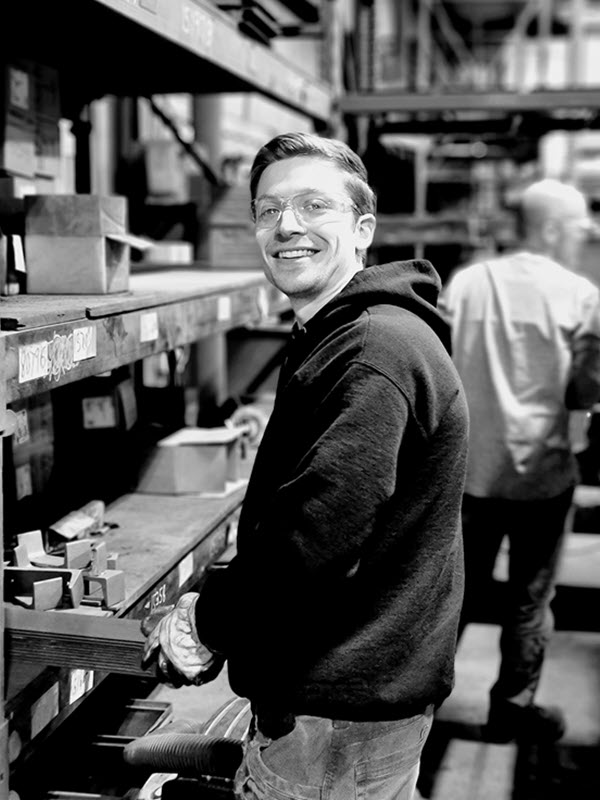 Benefits of Skilled Trades Careers in Manufacturing
Benefits of Skilled Trades Careers in Manufacturing
A career in skilled trades within the manufacturing industry offers several advantages:
Competitive Salaries
Skilled trades workers often earn competitive salaries and have the potential for wage growth as they gain experience and expertise.
Job Security
The demand for skilled trades professionals in manufacturing remains high, ensuring job security even during economic fluctuations.
Diverse Opportunities
Manufacturing facilities are diverse and can be found in various sectors, including automotive, aerospace, electronics, and more. This diversity provides options for specialization.
Hands-On Work
If you enjoy working with your hands and solving practical problems, a skilled trades career in manufacturing can be highly fulfilling, especially at a company like Cresswood, an American made world class industrial shredder and grinder company. The fact remains that a traditional four-year degree is not a one-size-fits-all solution. Although the college path is a great choice for many, for a great deal more people it doesn’t align well with their passions and talents. With the cost of a four-year degree has increased well over 180% over the past 20 years, it can also needlessly burden young people in debt while not leading to any sort of fulfilling career. This is a national tragedy and is the result of not promoting the skilled trades as a viable career path where you can support a family and create cool stuff.
Career Advancement
As you gain experience and expertise, there are opportunities for career advancement into supervisory or management roles.
Skilled trades careers in the manufacturing industry offer individuals the chance to build fulfilling and rewarding professions. With the right education, training, and dedication, you can become an integral part of an industry that powers economies and shapes the future. Whether you’re interested in working with machines, electricity, or metal, there’s a skilled trade in manufacturing waiting for you to embark on a path of expertise and success.
Cresswood Shredding Machinery is committed to recycling for a better world and continuous improvement. This means continuing to build and grow our team to ensure success for our customers as well as giving back to our community. We believe in the value of the skilled trades and are committed to continuing to help individuals develop and grow into roles within the manufacturing industry. If you are looking to work for an American made industrial grinders and shredders manufacturing company that is family-owned and lives out its core values, contact us today.
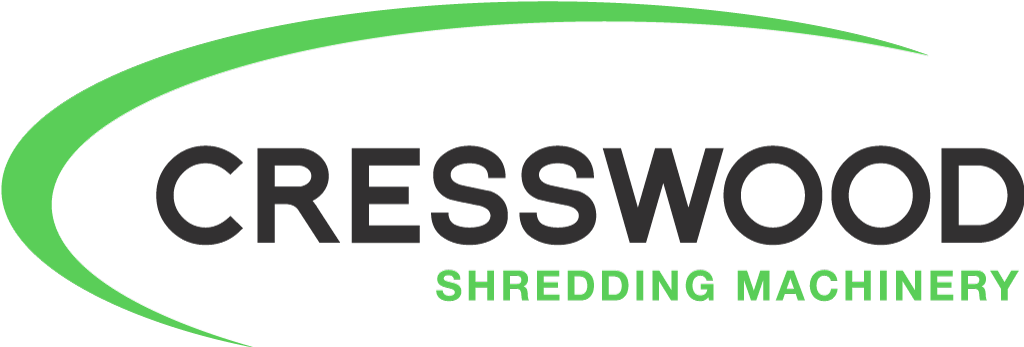
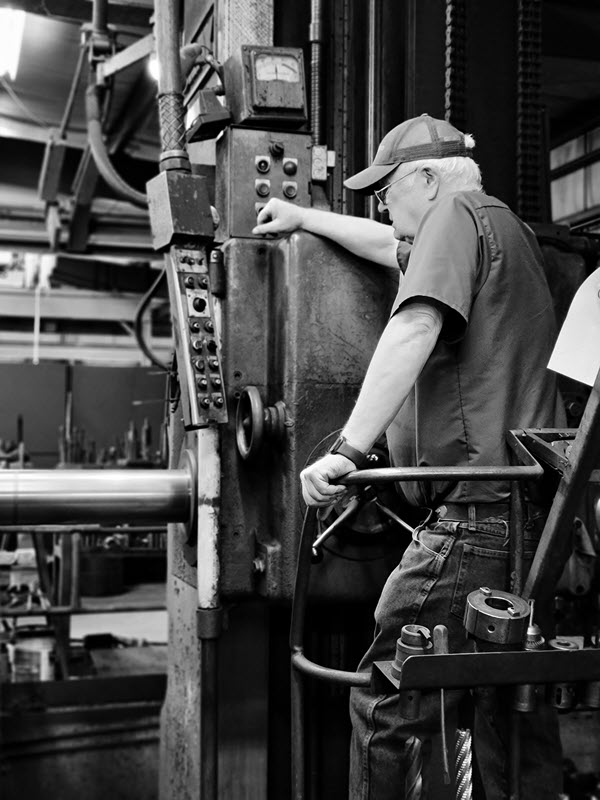
Recent Comments